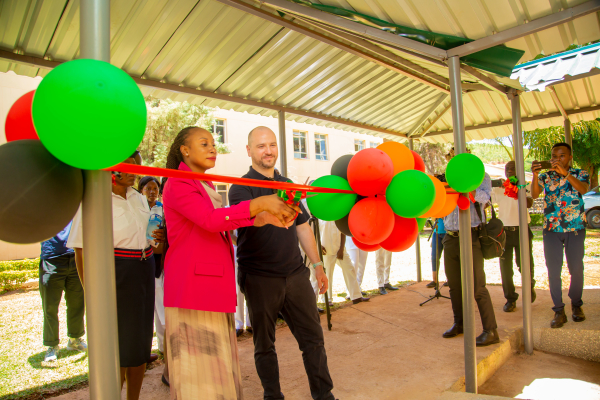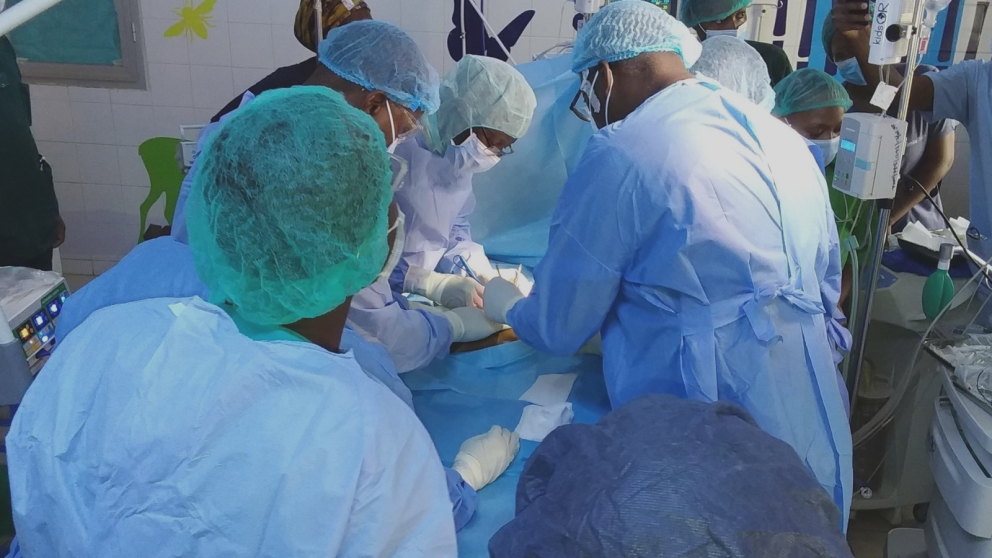
Conjoined twins separated in Burkina Faso
In late 2019, Kids Operating Room installed the first dedicated paediatric operating room (OR) in Burkina Faso. Since then, the local team has gone on to perform hundreds of procedures, saving and transforming the lives of children from across the country. The story below marks just one case, but two life-changing journeys, within Burkina Faso’s first operating room for children.
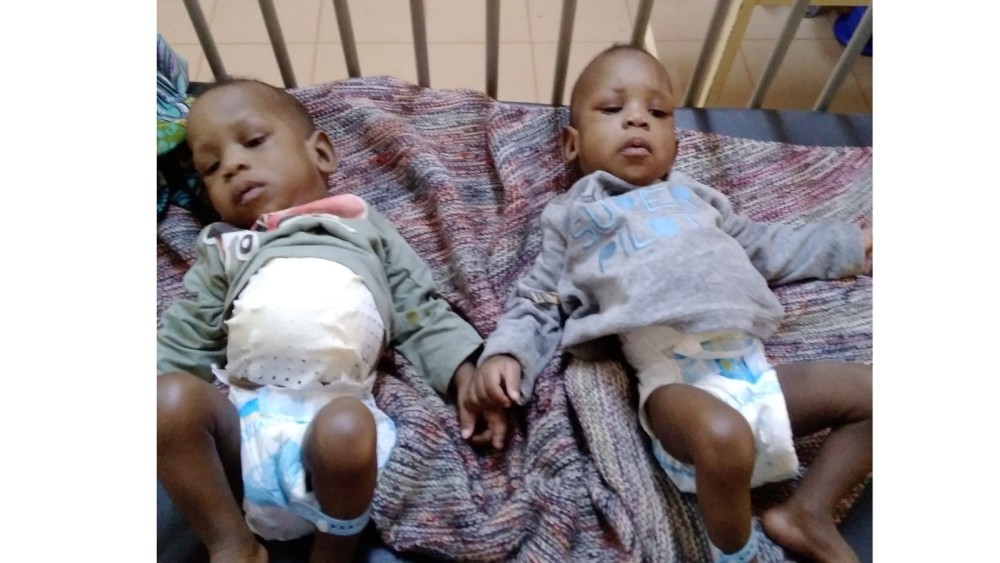
Lassina and Fousseni after surgery
For many paediatric surgeons the task of separating conjoined twins can stand as a landmark in their career; an opportunity to demonstrate the precision, skills and expertise they have honed in their training. These procedures are often fraught with practical and ethical risks. Yet, deep within the heart of such rare occurrences are the lives of at-risk children
Children like Lassina and Fousseni, seven-month-old boys who were born joined at the liver.

Lassina and Fousseni about to undergo surgery
Such a case (known medically as Omphalopagus twins) would be a challenge for any surgical team in the world, regardless of location. For Professor Albert Wandaogo and his team in Ouagadougou, this procedure would not have been possible until recently.
Despite having a population of over 20 million people, half of which are children, Burkina Faso lacked a dedicated paediatric operating room. Without such a facility, accompanying tools and infrastructure, the local surgeons of Burkina Faso were often unable to safely treat the distinct conditions, unique anaesthetic challenges and special needs of kids.
The people of Burkina Faso are far from alone in this respect. Around the world 1.7 billion children in low-and-middle-income countries lack access to safe surgery. While that scale and need can seem almost insurmountable, it can and must be tackled the only way possible: one children operating room at a time.
An operating room like the one that Lassina and Fousseni found themselves in at Charles De Gaulle Paediatric Teaching Hospital. The first dedicated OR for children in Burkina Faso, and one of six that KidsOR will install across the country in the coming years.
For Professor Albert Wandaogo and his team, the OR meant they had the space and tools needed for the 3-hour procedure. For Professor Bertille Ki and her team of anaesthesiologists, the OR meant having the specialist equipment needed to ensure the boys’ safety. And for Seydou and Fofana - the twin’s parents - the OR meant their boys could return safely home and flourish as healthy, happy children.
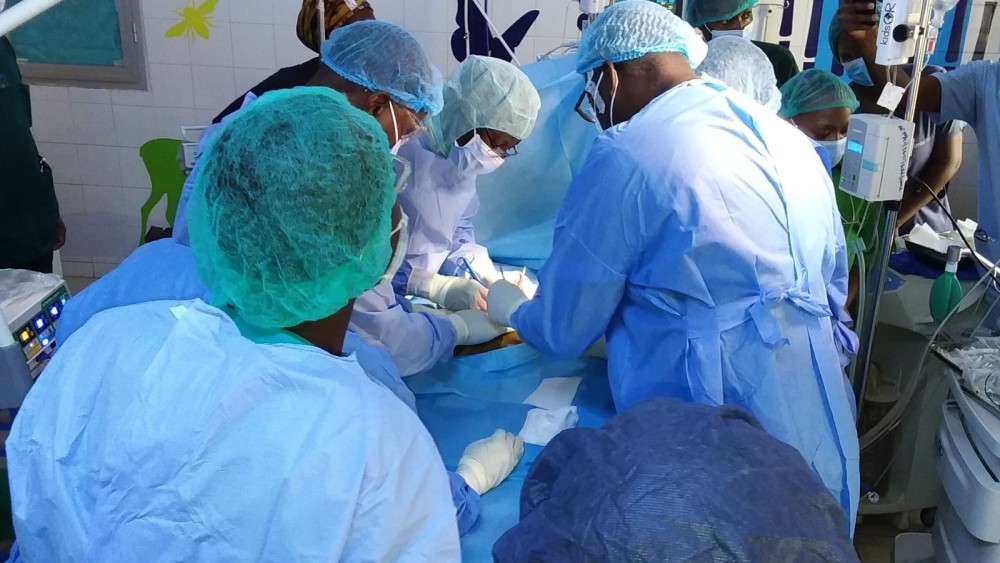
The surgical team operating on the cojoined twins
In complex cases, like that of Lassina and Fousseni, or even the simplest of injuries or illness, we believe in a world where every child has equal access to safe surgery. KidsOR will continue putting the tools for change in the hands of local teams and won’t stop until we’re no longer needed. You can help us empower local surgeons and transform the lives of more children by supporting us.
Share article
Recent Posts



Similar Posts
Healthier Together: A path to a better world
We're participating in BBC StoryWorks' fantastic campaign on global health!
A brand new operating room in Zambia!
We're so pleased to officially open our latest children's theatre, in Chipata, Zambia.
Launching Global Hospital!
Specialist firm launched to expand Kids Operating Room's life-changing reach.
